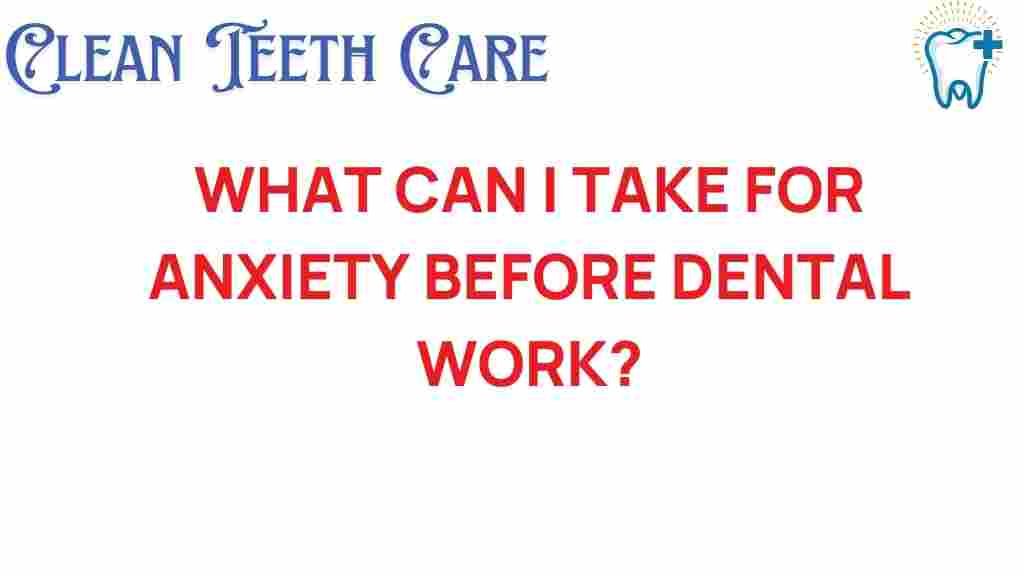Anxiety Management: Overcoming Dental Anxiety for a Stress-Free Experience
Dental anxiety is a common issue that affects many individuals, leading to avoidance of necessary dental work and impacting overall oral health. Understanding how to effectively manage anxiety before dental work is crucial for maintaining both mental and physical well-being. In this article, we will explore various coping strategies, relaxation techniques, and sedation options that can help you navigate pre-dental anxiety successfully. Our goal is to ensure patient comfort and promote a positive experience during dental visits.
Understanding Dental Anxiety
Dental anxiety refers to the fear or apprehension associated with dental procedures. This anxiety can stem from various factors, including:
- Past negative experiences: A traumatic dental visit can leave a lasting impression.
- Fear of pain: Many people worry about the discomfort associated with dental treatments.
- Feeling out of control: The dental chair and the tools can create a sense of vulnerability.
- Embarrassment: Concerns about oral hygiene or the state of one’s teeth can add to anxiety.
Effective Coping Strategies for Pre-Dental Anxiety
Managing anxiety before dental work requires a combination of mental preparation and practical strategies. Here are effective coping strategies that can help you feel more at ease:
1. Open Communication with Your Dentist
One of the most effective ways to manage dental anxiety is to communicate openly with your dentist about your fears. Discussing your concerns can lead to a more tailored approach to your care. Consider the following tips:
- Share your previous experiences and specific fears.
- Ask about the procedures and what to expect.
- Discuss sedation options that may be available to you.
2. Mindfulness and Relaxation Techniques
Incorporating mindfulness and relaxation techniques into your routine can significantly reduce anxiety levels. Try the following methods:
- Deep breathing exercises: Practice slow and deep breathing to calm your nerves.
- Meditation: Spend a few minutes meditating before your appointment to center your thoughts.
- Visualization: Imagine a peaceful place or a successful dental visit to reduce anxiety.
3. Distraction Techniques
Distraction can help take your mind off the procedure. Here are some ideas:
- Listen to music or podcasts during the appointment.
- Bring a stress ball or fidget toy to keep your hands busy.
- Engage in conversation with the dental staff to shift focus away from the procedure.
Exploring Sedation Options for Dental Work
If your anxiety is severe, sedation options may be a viable solution. Here are common sedation methods used in dentistry:
1. Nitrous Oxide (Laughing Gas)
Nitrous oxide is a mild sedative that helps patients relax while remaining awake and aware. It’s inhaled through a mask and works quickly, allowing for a fast recovery post-procedure.
2. Oral Sedation
This method involves taking a prescribed sedative pill before your appointment. Patients often feel drowsy but can still respond to questions. It’s essential to have someone accompany you, as the effects may linger.
3. IV Sedation
IV sedation provides a deeper level of sedation and is administered through a vein, allowing for precise control of sedation levels. Patients may not remember the procedure, making it ideal for those with high anxiety.
Pre-Dental Anxiety: Preparation is Key
Proper preparation can significantly reduce anxiety. Consider the following steps:
- Schedule your appointment wisely: Choose a time when you are least likely to feel rushed or stressed.
- Plan your day: Avoid scheduling other stressful activities on the same day as your dental appointment.
- Practice self-care: Get a good night’s sleep, eat a light meal, and engage in relaxing activities before your visit.
Troubleshooting Tips for Managing Anxiety
Even with preparation, some individuals may still experience anxiety. Here are troubleshooting tips to address those moments:
1. Recognize Your Triggers
Understanding what specifically triggers your anxiety can help you address it more effectively. Keep a journal of your feelings and responses leading up to dental appointments.
2. Use Positive Affirmations
Positive self-talk can help combat negative thoughts. Repeat affirmations such as “I am in control,” or “I can handle this,” to boost your confidence.
3. Seek Professional Help
If dental anxiety significantly impacts your life, consider speaking with a mental health professional. Cognitive-behavioral therapy (CBT) has been shown to be effective in treating anxiety disorders.
Maintaining Oral Care Despite Anxiety
It’s essential to maintain good oral care, even when experiencing dental anxiety. Here are tips to ensure your oral health remains a priority:
- Regular Check-Ups: Schedule routine visits with your dentist to prevent dental issues.
- Home Care: Brush and floss daily to keep your teeth and gums healthy.
- Use Mouthwash: Incorporate an antibacterial mouthwash to enhance your oral hygiene routine.
Conclusion: Taking Control of Dental Anxiety
Managing anxiety before dental work is essential for your overall health and well-being. By utilizing effective coping strategies, exploring sedation options, and maintaining open communication with your dental provider, you can significantly reduce pre-dental anxiety. Remember, you are not alone in this experience, and there are resources and techniques available to help you manage your fears. With the right tools, you can approach your dental visits with confidence and ease.
For more information on anxiety management and oral care, feel free to visit this resource. Additionally, consult with your dentist about tailored solutions for your dental anxiety. Your oral health is worth it!
This article is in the category Treatments and created by CleanTeethCare Team
